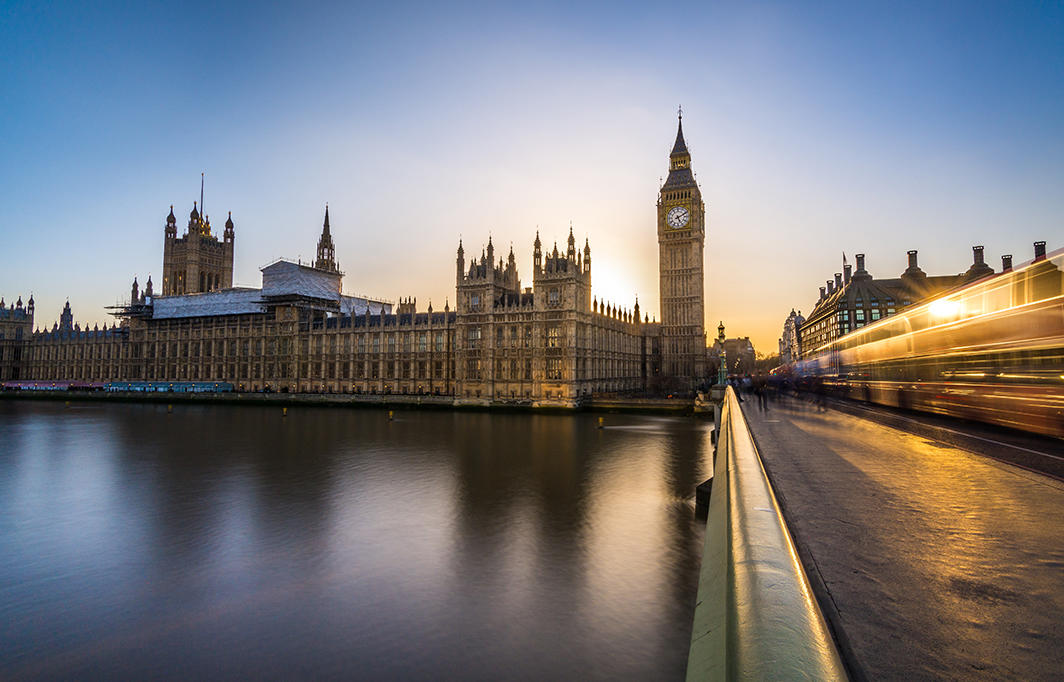The Queen’s Speech: what you need to know
News
- General news
20 December 2019

With the new Conservative ‘people’s government’ holding a sizeable 80-seat majority, yesterday’s Queen’s Speech outlined a packed list of priorities and legislation for the new parliamentary session with the ambition of achieving ‘nothing short of a complete transformation of our country’.
Top of the agenda was, of course, ‘getting Brexit done’ by implementing the Withdrawal Agreement Bill and leaving the EU by 31 January 2020. Below we have summarised how this and other key pledges are likely to impact our profession.
In the New Year we will address these topics more closely with details of our policy position and our plans to engage with government and wider stakeholders, ensuring that the voice of workplace and facilities professionals is heard and members can prepare for the new legislation.
Climate change and the environment
To deliver the government’s 25 Year Environment Plan and reach net-zero carbon emissions by 2050, a new Environment Bill will enshrine environmental principles and targets in law. Plans include:
- Investing in carbon capture, renewable and nuclear energy, and electric vehicle infrastructure so that individuals are always within 30 miles of a charge point; a consultation is expected on the phasing out of diesel and petrol vehicles
- Investing in the energy efficiency of homes, schools and hospitals
- Extending the 'polluter pays' principle; consistent rules for recycling; deposit return schemes for plastic and glass recycling; charges for specified single use plastics; banning exports of polluting plastic waste to non-OECD countries
- Improving air and water quality; developing resilient water and wastewater services; improving waste and resource efficiency moving towards a circular economy
- Powers to mandate the recall of vehicles and machinery that fail to meet emissions standards
- Local Nature Recovery Strategies and mandatory biodiversity protections in the planning system.
In 2020 IWFM will release a range of guidance to drive best practice on sustainability issues including social value and waste.
Building safety
New legislation to protect tenants and improve building safety by implementing the most urgent recommendations from the first phase of the Grenfell Tower Public Inquiry, as well as all 53 recommendations from Dame Judith Hackitt’s review of building regulations. Measures in the Building Safety Bill and Fire Safety Bills will include:
- Strengthening the whole regulatory system for building safety, including fundamental changes to the framework for high-rise residential buildings
- Providing clearer accountability for, and stronger duties on, those responsible for the safety of high-rise buildings throughout the building’s design, construction and occupation, with clear competence requirements to ensure high standards are upheld. This will implement the new statutory role of Building Safety Manager: IWFM has been closely involved in the Industry Response Group’s recommendations on the competency framework for this role
- Strengthening enforcement and criminal sanctions to deter non-compliance with the new regime and hold people to account when mistakes are made
- Giving residents a stronger voice in the system and ensuring they can contribute to maintaining safety in their buildings
- A stronger and clearer regulatory framework to provide national oversight of construction products, ensuring high performance standards with new sanctions to deter non-compliance
- A new homes ombudsman - that developers of new properties will have to join - which protects homebuyers’ interests and holds developers to account.
Employment
To ‘protect and enhance workers' rights as the UK leaves the EU’ a new Employment Bill will continue to deliver on the commitments set out in the Good Work Plan with:
- Measures to encourage flexible working for the benefit of both employees and employers, making flexible working the default unless employers have good reason not to
- Greater protection for low-paid workers and the gig economy, including a new right for all workers to request a more predictable contract
- Strengthening workers’ ability to get redress for poor treatment with improvements to the enforcement system, and increased transparency and clarity.
Immigration
To end the free movement of people from the EU and introduce an ‘Australian-style’ points-based immigration system from January 2021, with the aim of reducing overall levels of immigration. Recommendations for the new system are anticipated in January 2020; it is expected that:
- EU and non-EU citizens will be subject to the same immigration controls to ‘deliver a single global immigration system based on people’s skills, which would attract the brightest and best people from the whole world’
- Priority will be given to skilled workers with a job offer, and to investors and entrepreneurs setting up new businesses; the government also states it will support sectors of the economy with specific skills shortages. What this means for unskilled staff providing workplace and FM services remains unclear
- Visa schemes will be introduced for new migrants to fill shortages in public services, including a fast track NHS worker scheme
- The rights of EU/EEA/Swiss citizens living in the UK prior to January 2021 will be protected under the EU Settlement Scheme and the immigration status of Irish citizens will remain unchanged.
